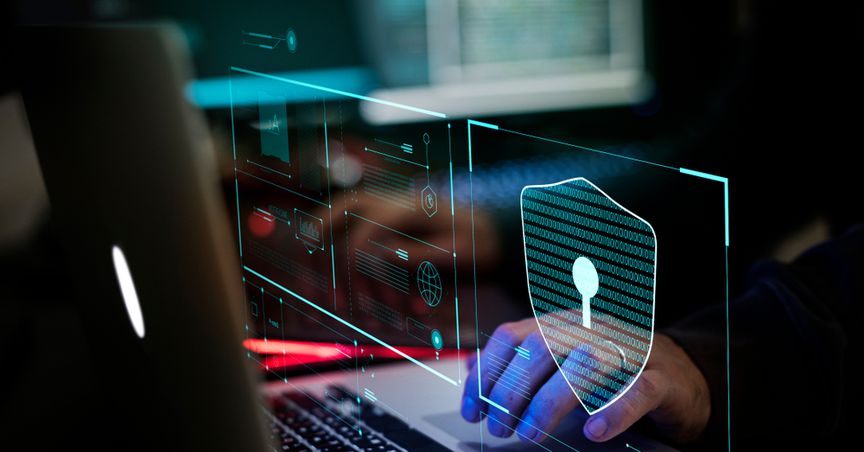Nowadays, the number of online hackers is on the rise, posing grave risk for users. Nevertheless, most of the internet users often neglect the rules of safe behaviour on the web, failing to realise the seriousness of potential consequences. Ordinary users think they are less likely to become a victim of hackers.
It is seen that mostly it is the regular users, who become the victims of cybercriminals, who hack their computers for various intentions. On that note, let's try to answer the question "why would cybercriminals be interested in your PC and how to stop hackers?".

Image Source: Pixabay.com
Access to Financial Information
Usually, cybercriminals make every effort to hack your computer in order to steal your financial data. If you are among online account holders and online shop customers, then your PC is probably in danger.
Ready Web Hosting
Having taken possession of someone else's computer, a hacker can utilise it to illegally store spam advertisements, phishing pages, malware, pirated copies of software and movies, etc.
Theft of Identity
All registration data, especially logins and passwords for web services that the ordinary user stores on his/her computer, are of great value to a cybercriminal. With these, hackers can, on behalf of the victim, engage in fraud at online auctions, attack other users of social networks, post illegal content on FTP servers, and hunt for corporate secrets.
Placement of Bots
Why do hackers want to break into others’ computers? An infected computer can become a part of a zombie network, and that too, without the knowledge of the owner, it can send spam, participate in DDOS attacks, rig contextual advertising ratings (click fraud), work as a proxy server, or hack CAPTCHA tests to create fake accounts.
Stealing of Virtual Values
For all their immateriality, the values that participants in online games operate with are of particular interest to cybercriminals. There are vast families of specialised programs aimed at stealing licence keys for online games and credentials of their participants. The volume of the underground market, where stolen game accounts and virtual values are exchanged for real money, is measured in billions of dollars.
Collection of Mailing Addresses
Before answering "how do hackers take over your computer?", you should understand their motives. One of the main reasons they hack your computer is that they can use it for gathering mailing addresses. As a rule, all email addresses found in a hacked system are sold by cybercriminals or utilised to send spam messages and implement fraudulent schemes. In this case, the first objects of his attacks may be relatives and friends of the victims. The login and password for free mail can give hackers access to other web services under a false name, especially if this set of identifiers is the only key to them.
How to Avoid Hackers and Protect Yourself
The number of online users is increasing by the day and so is the threat posed by hackers. As we have already mentioned, even ordinary users and their devices can be interesting for hackers. Hence, users must protect yourself in advance from possible hacking attacks. On that note, we have gathered for you several effective and helpful tips on how not to become a victim of cybercriminals.
Install VPN
Downloading VPN for Windows and other systems is probably the best solution for securing yourself from hackers. With the assistance of the latest VPN Windows 10, users can enjoy 100% protection, get access to the desired content, secure their personal information, etc. For example, using VeePN can guarantee your online safety even while you are using public Wi-Fi. It does not take much time to learn how to use a VPN on a PC. You can opt for a free trial to make sure you will be completely protected from spies and cybercriminals.
Update Security Software
You do not need to be an IT specialist to protect yourself from attacks by hackers. First, you can update operating systems and internet-connected software when needed. This includes email programs, web browsers, music players, etc. If you are afraid to miss an update, set a notification for yourself so your computer will inform you when a software update is available.
Create Reliable Passwords
Hackers are less likely steal your computer physically. Still, it does not mean they cannot steal your smartphones, which you can also lose at times. If your smartphone provides you with the possibility to get access to important information stored on your computer, then you should protect your smartphone as well. One of the ways how to stop hackers from receiving your private data is to create strong passwords.
Turn-off Connections When Not in Use
Most often, we forget to disable our Wi-Fi or Bluetooth connections to the internet and other devices, after having used them. This is a huge mistake that can lead to bad consequences. Cybercriminals can utilise your network or get access to your devices without your knowledge. Thus, when you aren’t utilising connections, it is recommended to turn them off.
Summing-Up
Every day a large number of ordinary users are becoming victims of cybercriminals who hack their computers and other devices for unethical purposes. We have already explained why your PC can be an object of interest for hackers. Thus, not to become the next victim of hackers it is advisable to stick to simple security rules. While one method of how to avoid hackers is helpful, it will be more effective to make use of all protection methods.
Author Bio:
Julie Spencer is the Digital Marketing manager in VeePN VPN company. In her free time, Julie writes articles that may be useful to Internet users. Julie Spencer believes that a sense of security and support is a great motivation for employees. In the future, Julie plans to open her own marketing company.




